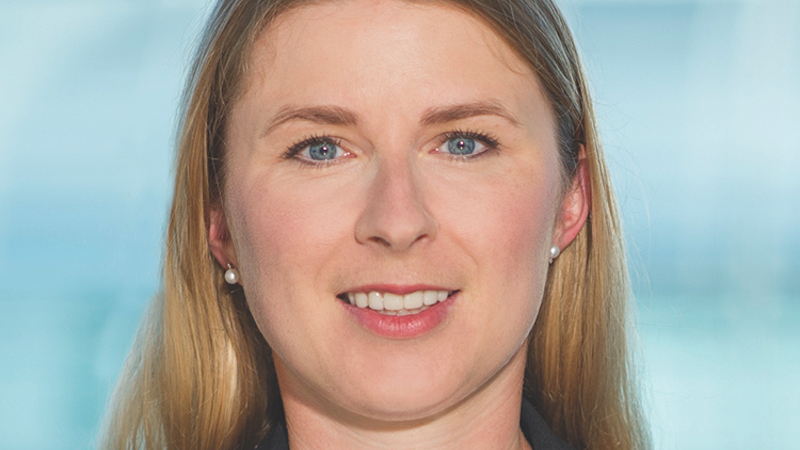The Barings Emerging Europe investment trust is seeking to expand its mandate to the Middle East and Africa meaning there will no longer be any investment trusts in the emerging Europe sector.
The £84m investment trust had been the only constituent of the Association of Investment Companies Emerging Europe sector since Blackrock Emerging Europe shareholders voted to wind down that trust in June 2018. The investment trust would be renamed Barings Emea Opportunities, if shareholders support the move, and would be benchmarked against the MSCI Emerging Markets EMEA Index.
There would be no change to the fund managers: Matthias Siller, Maria Szczesna (pictured) and Adnan El-Araby.
The AIC Emerging Europe sector would then be frozen until new investment trusts launched that met the sector definition. It is likely the Barings trust would end up in the AIC Global Emerging Markets sector.
Investment management fees on the trust would drop from 0.80% to 0.75%, which would make it the cheapest in either sector, the board said in its regulatory filing.
By the board’s own admission, investing in emerging Europe is difficult from a concentration perspective with Russia, Turkey and Poland accounting for 90% of the MSCI EM Europe 10/40 index. Those countries would account for 33% of the new index.
Additionally, the energy sector’s weighting is 34% in the existing index compared to 15% in the new index.
See also: Sam Vecht: It was awkward when our investors voted to wind up
‘The future of the fund remains uncertain’
While the board said the expanded investment mandate would appeal to a wider range of investors, doubts still remain about the future of the investment trust.
Numis said in an analyst note it was unclear how much additional demand the new approach would generate, pointing to the demise of Blackrock Emerging Europe as evidence that few investors are allocating to the asset class. “We believe the future of the fund remains uncertain given it is subscale, with net assets of just £84m having returned significant capital via buybacks,” the note said.
Blackrock Emerging Europe had to cancel a tender offer in 2018 when 60.75% of share capital voted to exit meaning the trust would have been unviable. Instead, 31.4% of investors chose to rollover into the Blackrock Frontiers investment trust, on which Sam Vecht was also a co-manager, while the remainder exited at net asset value less costs.
Willis Owen head of personal investing Adrian Lowcock said the Fidelity Emerging Europe Middle East and Africa fund is one of the few examples of a potential competitor to the new Barings mandate, albeit in the open-ended space.
“The reality is that bespoke regional frontier/emerging markets funds are niche and don’t attract enough money for a competitive sector, so merging a few sectors helps reduce the costs while increasing the investment opportunities,” Lowcock said.
“Even an Emea fund is likely to remain fairly narrow for many investors and a broader frontiers fund might offer exposure to the areas of growth that investors are looking for.”
In July, the Aberdeen Frontier Markets investment trust announced it was winding down due to significant underperformance, leaving Blackrock Frontiers as the only pure play option for investors seeking to access the asset class through a closed-ended structure. The Jupiter Emerging and Frontier Markets trust also covers the asset class but its biggest country weightings are in emerging markets such as Taiwan, China and Mexico.
The pitch for the Barings Emea Opportunities trust
The board said the new mandate would make Barings Emea Opportunities the only UK-listed investment trust focused on the region. It said the differentiated investment opportunity would appeal to more investors and therefore stabilise the discount and improve liquidity.
It would leverage the existing Emea team at Barings that already manages £1.2bn.
On the diversification away from fossil fuels, the board noted the new investment mandate would be more exposed to the expanding middle class and increasing internet take-up across the region. It listed social media, gaming, food delivery and fintech as areas the investment managers were hoping to tap into.
Lowcock said: “From a research perspective the geographies are fairly close so travel is minimised and you wouldn’t need a global reach, unlike a pure frontiers fund. However, there are challenges.
“The cultures and business practices across these areas are very broad and different which means local knowledge should be an important factor.”
City of London holds 25.8% of the investment trust and is supportive of the move, according to the board. Lazard holds 6.7%, according to Bloomberg.










